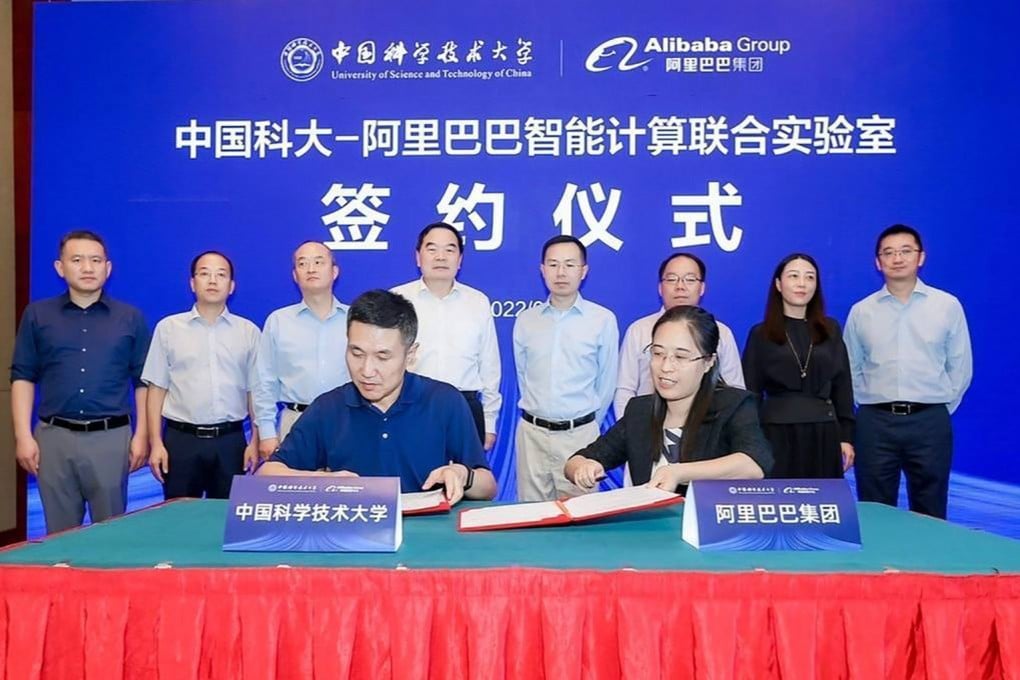Alibaba sets up AI labs with two prestigious Chinese universities as Washington ramps up tech restrictions
- Alibaba is teaming up with Peking University and the University of Science and Technology of China to focus on frontier theories and cognitive intelligence
- The news comes shortly after Washington restricted access to advanced GPUs from Nvidia and AMD that have become critical to AI applications

Hangzhou-based Alibaba, owner of South China Morning Post, announced over the weekend that it launched the AI Innovation Joint Lab, a project between its online advertising subsidiary Alimama and Peking University. The lab focuses on frontier theories, methodologies and key technologies in AI, the two parties said.
The Beijing-based university has a two-decade track record in AI. In 2002, it launched the School of Intelligence Science and Technology, the first of its kind in China. It has been a leading university in the space ever since.
The announcement of the new lab came just two days after Damo Academy, Alibaba’s in-house research institute, said on September 15 that it had launched an Intelligent Computing Lab with the University of Science and Technology of China (USTC) in Hefei, capital of eastern Anhui province. That lab, according to an announcement put out by USTC, will focus on cognitive intelligence, privacy-preserving computing, intelligent speech technology, natural language processing, and machine vision.
While China’s tech giants have splurged significantly on AI researchers, their efforts pale in comparison to those of many international peers. The US still dominates the AI industry, according to the AI 2000 index published by Tsinghua University in January. Out of 21 subcategories – which include natural language learning, computer vision, chips technology, Internet of Things, and augmented reality – 16 were led by US scholars in the rankings.